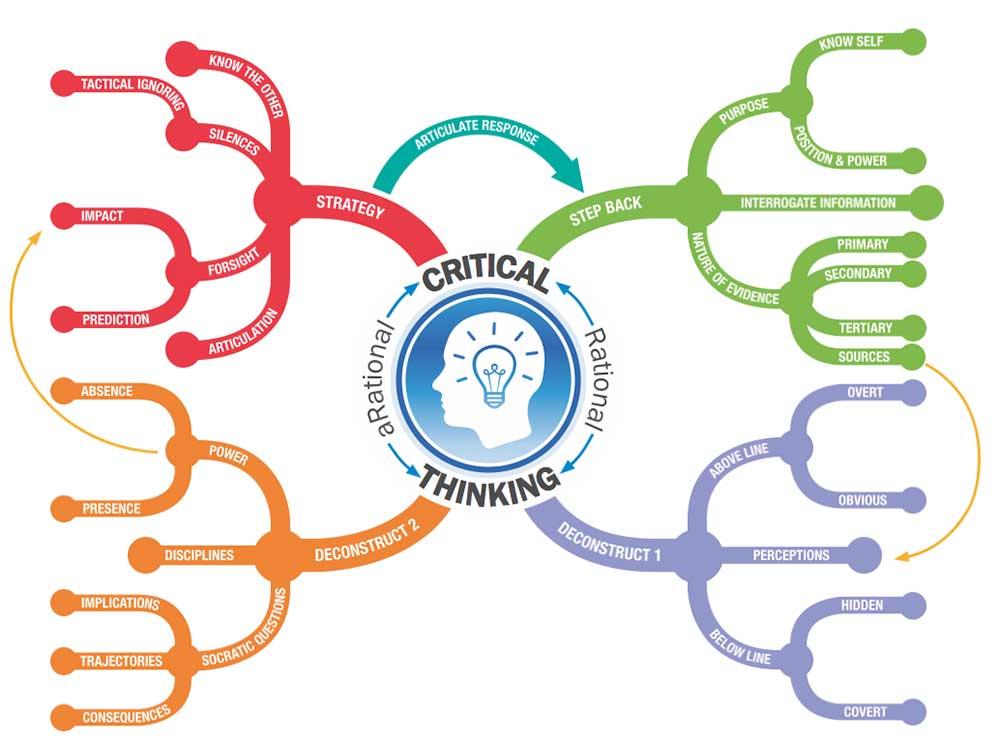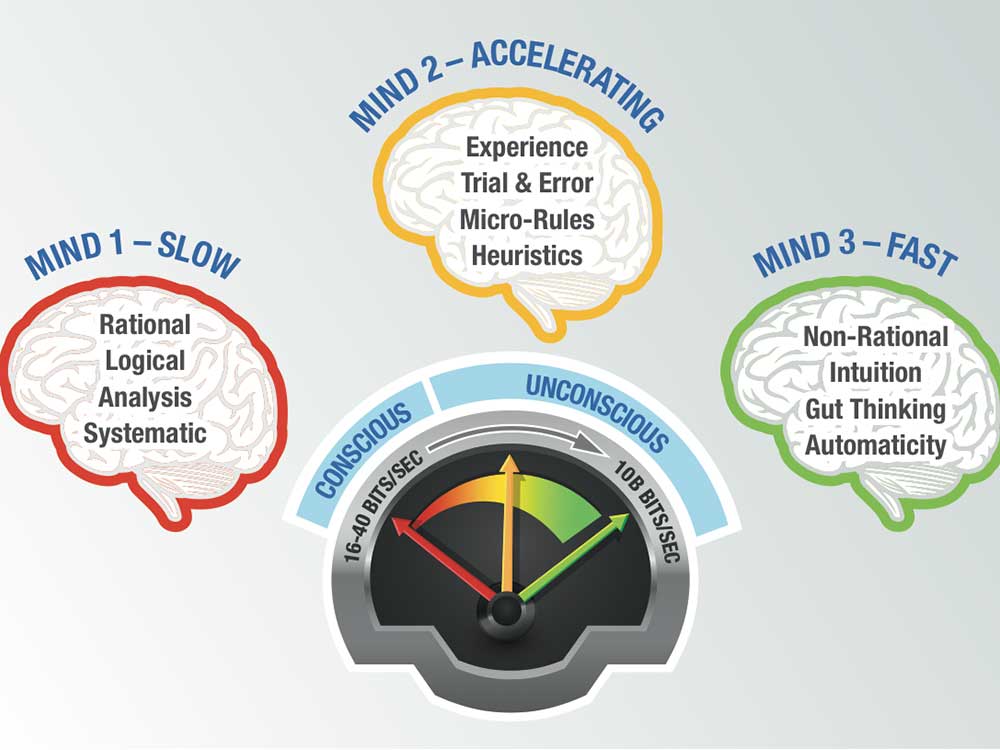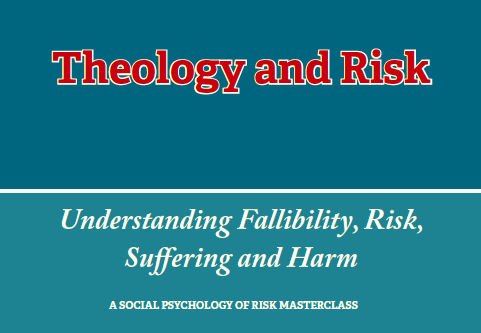
iThink – Critical Thinking, Dialectic and Risk Unit 12
24 September 2016
Understanding and Developing Risk Intelligence Unit 10 (eLearning)
26 September 2016Overview
The study of social psychological principles and concepts enables a new way of understanding why people do what they do, especially understanding how people make sense of risk. Most resources on communication tend to concentrate on the mechanics and dynamics of communication. This unit looks at communication and consultation from two angles – the first at the characteristics of social psychology and the second the nature of risk. The unit has a particular emphasis on the social determinants of risk through the priming effect on the unconscious in communication. In this regard the unit introduces the importance of semiotics in communication.
A social psychology of risk views communication and consultation as social activities that convey meaning, purpose and understanding in risk. Whilst communication types, styles and mechanics are important the tendency is not to relate such study directly to the social psychology of risk.
This unit seeks to bring together a range of disciplines and ideas that affect the way we view risk, particularly how risk is communicated.
Learning Outcomes
The Social Psychology of Risk course is a professional program that requires development of particular attributes for accreditation purposes. These are also included in the Learning Outcomes.
On successful completion of this unit, Participants should be able to:
- Understand the implications of a social psychology of risk for communication
- Identify contemporary communication theories and relevance to the social psychology of risk
- Investigate brain/mind research and it’s implications for communication, collaboration, decision making and the unconscious
- Utilise semiotics and discourse analysis for understanding of communication and consultation in risk
- Recognise the significance of the unconscious for communication in in risk
- Develop methods for managing uncertainty and tacit knowledge
Content
Topics will include:
- A social psychology of communication
- The art of listening and collaborating
- HB 327 Communicating and Collaborating About Risk
- Discourse and Language
- Priming, pitching and framing
- Semiology and semiotics
- Worldviews and paradigms
- Binary opposition and fundamentalism
- Dialogue and collaboration
- Type and communication
- Jungian theory and the unconscious in communication
- Creativity, imagination, innovation and risk
- Power and due diligence
Assessment
Book Reviews
Each participant will provide 3 book reviews as assessment and participate in the on group forum.
Videos
The Communicating and the Unconscious in Risk lectures are available on registration.
Password to access the videos: Provided on registration.
Participants will watch the video series, will select three books to read and provide short book reviews on each. A learning forum will also be conducted to assist with this process.
Bibliography
Required text(s)
Long, R., (2014) Real Risk. Human Discerning and Risk Scotoma Press, Canberra.
Norretranders, T., (1991) The User Illusion, Cutting Consciousness Down to Size. Penguin, New York.
Recommended references
Caldini, R., (2011) Influence, Science and Practice. Peason, Boston.
Chandler, D., Semiotics The Basics. Routledge, London.
Gigerenzer, G., (2007) Gut Feelings: The intelligence of the unconscious. Viking, New York.
Further references
Ariely, D., (2008) Predictably Irrational, The Hidden Forces that Shape our Decisions. HarperCollins, Melbourne.
Bargh, J. A., (ed.) (2007) Social Psychology and the Unconscious: The Automaticity of Higher Mental Processes. Psychology Press, New York.
Claxton, G., (2005) The Wayward Mind. Abacus Press, London.
Gardner, H., (1993) Frames of Mind, The Theory of Multiple Intelligences. Fontana, London.
Gladwell, M., (2005) Blink. Penguin, London.
Gigerenzer, G., (2007) Gut Feelings: The intelligence of the unconscious. Viking, New York.
Hassin, R., Uleman, J., and Bargh, J., (2005) The New Unconscious. Oxford University Press, London.
Higgins, E. T., (2012) Beyond Pleasure and Pain, How Motivation Works. Oxford University Press, London.
Jacob, P. and Jeannerod, M., (2006) Ways of Seeing: The Scope and Limits of Visual Cognition. Oxford University Press, London
Klein, G., (2003) The Power of Intuition. Doubleday, New York.
Mlodinow, L., (2012) Subliminal, How Your Unconscious Mind Rules Your Behaviour. Pantheon Books, New York.
Moskowitz, G., and Grant, H., (eds.) (2009) The Psychology of Goals .The Guilford Press, New York.
Neville, B., (1989) Educating Psyche, Emotion, Imagination and the Unconscious in Learning, Collins Dove, Melbourne.
Plous, S., (1993) The Psychology of Judgment and Decision Making. McGraw Hill, New York.
Ramachandran, V.S., (2004) A Brief Tour of Human Consciousness. Pi Press, New York.
Robinson, K., (2009) The Element, How finding your passion changes everything. Penguin, London.
Robinson, K., (2011) Out of Our Minds, Learning to be Creative. Wiley, London.
Standards Australia (2009) AS/NZS 31000:2009 Risk Management – Principles and Guidelines.
Standards Australia. (2010) Handbook 327: 2010 Communicating and Consulting about Risk.
Taleb, N., (2012) Antifragile. Allen Lane, London.
Tannen, D., (1998) Conversational Style, Analysing Talk Among Friends. Oxford, London.
Wegner, D., (2002) The Illusion of the Conscious Will. The MIT Press, Cambridge Massachusetts.
Weick, K., (1979) The Social Psychology of Organizing. McGraw Hill, New York.
You must be logged in to post a review.




Reviews
There are no reviews yet.